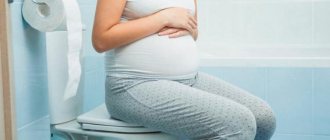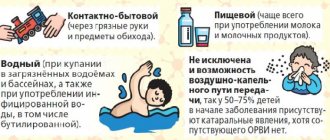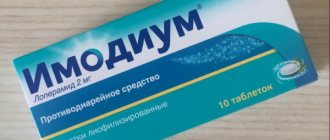The second trimester is considered to be the most wonderful period of pregnancy. It starts from the 14th week and comes to an end at the 27th. The expectant mother's body adapts to the new situation: nausea in the morning is already receding, hormonal levels stabilize, and, as a result, the mood becomes better.
As a rule, the belly in the second trimester noticeably increases, and the breasts look more voluminous. The baby is actively developing. It is no longer called an embryo, but a fetus. All systems of his body are adjusted to the upcoming work and even more intensive development.
Symptoms of the second trimester of pregnancy
During this period, the uterus actively increases in size. If at the 13th week it just begins to leave the pelvic cavity, then by the 27th it occupies up to 70% of the abdominal cavity. This becomes one of the most common causes of discomfort for the expectant mother: her organs are not accustomed to such a neighborhood.
In many ways, a woman’s well-being in the second trimester depends on her lifestyle. Proper balanced nutrition allows you to avoid problems with the gastrointestinal tract. And although the gastrointestinal tract organs begin to shift under the influence of the enlarged uterus, its size is not large enough to cause constipation, nausea and diarrhea.
The influence of progesterone gradually decreases: nasal congestion goes away, the urge to urinate becomes less frequent. The fact is that the hormonal background is stabilizing, the fetus and uterus have not yet reached such a size as to cause compression, which means the number of urinations should return to normal. If frequent urge to go to the toilet persists in the second trimester, you should undergo an examination and rule out inflammation of the bladder - cystitis.
From the 13th week, the volume of circulating blood in a woman’s body increases. During this period, the risk of anemia is very high, so it’s time to maintain iron levels in the body, for example, with the help of the Pregnoton Mama complex.
The increasing volume of fluid provokes a decrease in blood pressure. By the end of the 27th week, the body adapts, the numbers on the tonometer return to their usual values.
The growth of the uterus can cause minor pain in the lumbar region and lower abdomen. This is due to tension in the ligaments that support the uterus. Breast enlargement may cause minor discomfort in the thoracic spine. Closer to the middle of the trimester, a woman’s center of gravity shifts, so coordination in movements may be lost, especially when going up and down stairs or when bending.
As a rule, sleep becomes more restless. After all, now you need to sleep on your side. Maternity pillows help solve the problem.
Nature of pain
Depending on the cause, the pain has a different character: aching, stabbing, pulling, cramping. It can be mild and provoked by stress or be unbearable when emergency medical attention is needed.
If a pregnant woman has stomach problems, she begins to ache in the left hypochondrium, which is characterized by nausea, vomiting, sour belching, and lack of appetite.
If the left side hurts during pregnancy due to compression of the intestinal loops, the pain is monotonous, nagging in nature, accompanied by constipation or unstable stool. Increased gas formation is often observed. The pain intensifies after eating, significantly weakens after bowel movement.
When pancreatitis occurs, the pain is intense and girdling in nature. Accompanied by nausea, vomiting, fever, and severe impairment of general condition.
With an ectopic pregnancy, severe cramping pain occurs suddenly and spreads from below to the entire abdomen. If a rupture of the left ovarian tube occurs, this is accompanied by vomiting, bloody discharge from the genital tract and a significant deterioration in health. Immediate hospitalization and emergency care are required.
In some cases, during pregnancy, the left side hurts when walking. This may be associated with pathology of the spleen, intestines, and the development of left-sided pleurisy.
What should an expectant mother be wary of?
The second trimester is characterized by a large amount of discharge. Normally, they have a light white or yellowish tint, a uniform consistency, and no odor. Discharge becomes more abundant due to the fact that it is more difficult for the body to maintain normal microflora, compensatory mechanisms are launched.
However, the appearance of the discharge described below is not typical for a normal pregnancy:
- Brown. There is a risk of late miscarriage, premature birth and problems with the placenta.
- Greenish, gray. Indicate infectious processes of a purulent nature.
- White curdled ones. The microflora is disrupted and, as a result, thrush occurs.
If any unusual discharge occurs, you should consult a doctor.
Diagnostics
During pregnancy, it is quite difficult to examine a woman. The maximum that is allowed by specialists is an ultrasound examination, and in difficult situations - a computed tomography or x-ray.
But usually, it is enough to collect an anamnesis (information about the time, nature and location of the localization), an examination by a gynecologist or surgeon, palpation of the abdomen, blood and urine tests in order to find out the diagnosis and begin gentle therapy, taking into account the characteristics of each woman and the duration of pregnancy.
The main thing to remember is that if any discomfort occurs, you should play it safe and consult a specialist for advice.
Examinations in the second trimester of pregnancy
In the second trimester of pregnancy, you should also undergo some tests to exclude fetal pathology and start treatment in time if necessary. Features of the second trimester of pregnancy determine the list of necessary studies and consultations.
At 14–20 weeks, a screening test for chromosomal pathologies is required. Based on their results, the risk of having a child with the following diseases is assessed:
- Down syndrome;
- Edwards syndrome;
- trisomy, etc.
An ultrasound examination is also mandatory. It allows you to assess the harmonious development of the fetus. Additionally, the doctor evaluates the heart rate of the unborn baby, its position, and the length of the umbilical cord.
General and biochemical blood tests are also performed. The first allows you to assess the mother's hemoglobin level, since anemia during pregnancy is not uncommon. When conducting biochemistry, the following indicators are especially important:
- alpha fetoprotein (AFP);
- hCG;
- free estriol.
An obstetrician-gynecologist will definitely tell you what to do in the second trimester of pregnancy if there are abnormalities in the tests.
Recommendations for the second trimester of pregnancy
Most recommendations are universal for all trimesters, for example, giving up bad habits, sleeping for 8-9 hours and eating well. But there are some important tips that apply specifically to the second trimester.
- You should only sleep on your side and use a special pillow for pregnant women.
- From the 24th week, it is advisable to start wearing a bandage, this will help reduce the load on the spinal column.
- Avoid contact with people who are sick or have a cold. If the second trimester falls during the “cold season,” try to spend less time in crowded places.
- Take vitamin and mineral supplements, even if you haven't done so before. Right now, the need for vitamins and minerals is increasing somewhat, especially iron, as well as omega-3 PUFAs, which are needed for the formation and proper development of the child’s brain, nervous and immune systems.
- Switch to proper nutrition. The second trimester is a time of active fetal growth; diets and fasting are inappropriate now. But it is important not to get carried away with fast food, to make sure that the menu has enough proteins and seasonal vegetables and fruits.
When emergency medical intervention is required
Some conditions require urgent medical attention because they can threaten the life of the woman and child. This is a rupture or suspected rupture of the spleen or ovarian cysts, appendicitis, or ectopic pregnancy. When pain in the left side combined with bleeding indicates an incipient miscarriage, the pregnant woman also needs to be taken to the hospital as quickly as possible.
The reason to call an ambulance is a sharp, unbearable pain that does not go away within half an hour. If there is uterine bleeding, you should call a doctor immediately.
Some conditions that cause pain in the left side require immediate medical attention
Before the ambulance arrives, the woman needs to lie down and not make sudden movements.
Vitamins and minerals in the second trimester of pregnancy
What you need to know about the second trimester of pregnancy? During this period, the fetus actively grows and develops, its body begins to function independently. Micronutrients in food are no longer enough for two organisms. Therefore, women during this period are strongly recommended to take vitamin and mineral complexes. They help provide the child with the substances necessary for growth and development, and the mother to maintain her health. After all, if there is a shortage of any useful substances, they will be “extracted” from the pregnant woman’s body and given to the baby.
A good choice would be the Pregnon Mama complex, which takes into account the needs for vitamins and minerals during pregnancy. In addition, it contains 200 mg of omega-3. The peculiarity of the complex is easily digestible forms of nutrients. For example, iron is contained in liposomal form, which is absorbed several times better than other types of iron and is therefore more effective in preventing anemia. Folic acid is found in the form of methylfolate.
Signs of ruptured membranes
The amniotic sac may rupture (rupture) in the CENTER just above the cervix. In the event of a central rupture of the amniotic sac, the amniotic fluid will come out in a hot stream (“gushing out like a bucket”), the waters will break.
In some cases, rupture of the membranes occurs above the internal os (opening) of the cervical canal. In the case of a high lateral rupture of the membranes, a SIGN OF RUPTURE of the membranes is the leakage of amniotic fluid in small portions (water leakage).
Often a pregnant woman feels that the pad or underwear has become wet, but cannot understand the reason - it is heavy discharge or rupture of water, leakage of amniotic fluid.
Increased vaginal discharge when coughing (“COUGH TEST”) is a sign of high rupture of the membranes and leakage of amniotic fluid.
What should you avoid in mid-pregnancy?
In the second trimester of pregnancy, the characteristics of a woman’s condition suggest some restrictions and more careful behavior in everyday matters.
- Do not take medications without a doctor's prescription.
- Do not wear tight, constricting clothing.
- Never lift more than 3 kg.
- If you are involved in strength or team sports, you will have to give up training. You can move on to more gentle and relaxing activities, such as swimming, Pilates, etc.
It is in the second trimester that a woman gets used to her new role, “gets to know” the baby when he moves, and becomes attached to him. This is a period of bright feelings and genuine emotions. Do everything in your power to ensure that your future baby develops correctly and is born healthy!
THIS IS NOT AN ADVERTISING. THE MATERIAL WAS PREPARED WITH THE PARTICIPATION OF EXPERTS.
How to relieve pain
To prevent the appearance of pain symptoms before pregnancy, you need to pay attention to your health and treat existing diseases.
In addition, to relieve pain you need:
- eliminate bad habits
- normalize nutrition;
- monitor your weight;
- have sufficient physical activity;
- follow doctor's orders
When a pregnant woman has side pain, wearing a bandage can help. A properly selected device relieves muscle tension and normalizes the tone of the uterus.
The device relieves muscle tension and normalizes uterine tone
If the pain is caused by physiological reasons, then the danger is minimal and taking medications is not necessary. If necessary, the attending doctor will prescribe them.










